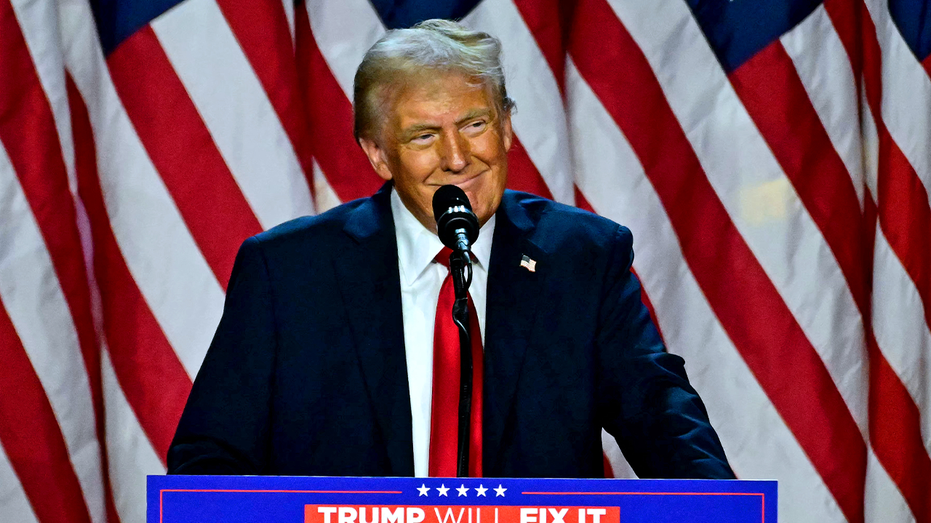In a speech brimming with emotion and fiery rhetoric, former President Donald Trump recently made a bold assertion that his life was spared in order to fulfill a mission of restoring America to its perceived former greatness. Speaking to an enthusiastic crowd, Trump expressed not only gratitude but also a renewed sense of purpose, which he claimed was instilled in him through divine intervention.
The rally, held in a packed venue, was a jubilant affair as supporters gathered to hear from the man who has remained a towering figure in American politics, even after leaving the Oval Office. Trump’s speech was marked by his characteristic bravado, as he launched into a narrative that framed his political journey as nothing short of providential.
“I stand before you today because of the grace of God,” Trump declared, drawing loud applause from the audience. “My life was spared for a reason. I have been chosen to restore America to greatness, and together, we will make it happen.”
The former president’s remarks come at a pivotal time in the political landscape. With the nation deeply divided and the approach of the next presidential election, Trump’s statements are likely to ignite both fervent support and criticism from different quarters.
Trump, who continues to wield substantial influence over the Republican Party, has spent the years since his presidency maintaining a prominent public profile. His speeches often underscore the themes of nationalism, economic revitalization, and the upholding of traditional American values. This latest rally was no different, as he doubled down on these key points, weaving them into a larger narrative that positions his political career as an almost divinely ordained mission.
Throughout his speech, Trump painted a picture of the country that, according to him, had lost its way under current leadership. He described an America plagued by economic hardship, cultural fragmentations, and diminished global standing. In his vision, these are all elements that require immediate correction through strong, decisive action.
“We have to bring back those jobs, support our brave men and women in uniform, and ensure that American values are not just preserved but celebrated,” Trump stated emphatically. “This is a fight for the soul of our nation, and I am here to lead that charge.”
The invocation of his survival story lent a dramatic flair to the rally. Trump, in recent remarks, avoided specifics but alluded to significant challenges from which he emerged unscathed, attributing his survival to a higher purpose. This narrative of resilience and destiny has resonated deeply with his core supporters, who often view Trump as an embattled leader on a mission to rectify what they perceive as the nation’s downfall.
The former president’s claims drew immediate reactions across social media and political circles. Supporters hailed his speech as an inspiring call to action, while detractors criticized it as another example of Trump’s penchant for unverified claims and dramatization.
Counterpoints from his opponents were rife, emphasizing the tangible issues America faces, such as political divisiveness, racial tensions, and global economic competition—problems that require practical solutions rather than grand, metaphorical proclamations. Critics argue that Trump’s narrative overlooks pragmatic approaches in favor of sensationalist declarations that galvanize a base, potentially at the expense of broader national cohesion.
Despite differing opinions, Trump’s influence on the Republican Party is undeniable. As discussions about potential candidates for the next election ramp up, Trump remains a key figure accounting for a substantial amount of media coverage and public interest. His speeches often set the tone for subsequent political discourse, and this latest rally was no exception.
In an apparent nod to his enduring political viability, Trump declared, “We are going to win so much, you’re going to be tired of winning. But it won’t be my victory, it will be ours, for America.”
This sentiment echoes a familiar refrain from his initial campaigns, underscoring a message designed to unite his supporters under a banner of potential triumph, regardless of the obstacles ahead.
As Trump tours the nation with similar rallies scheduled in the coming months, it remains to be seen how his message will continue to evolve and how it will impact the broader political arena. His ability to frame political discourse around themes of destiny, divine purpose, and national renewal presents a unique dynamic, one that both allies and adversaries will need to navigate carefully.
Thus, the former president continues to command attention, not only as a former leader but as a symbol of a particular vision for America—one defined by his terms, and purportedly ordained by a higher power. Whether this will indeed translate into tangible political shifts or remains largely as one man’s interpretation of destiny, is something that will unfold as the political season progresses.
































